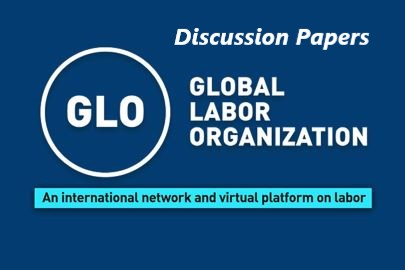A new GLO Discussion Paper shows that relative to endogenous port ownership structures, state-owned ports appear as the most likely equilibrium result.
GLO Discussion Paper No. 1326, 2023
GLO Fellow Nicola Meccheri
Unionised dockworkers and port ownership structure in an international oligopoly – Download PDF
by Meccheri, Nicola
Author Abstract: In an international duopoly with two markets and two ports, this paper investigates the role of dockworkers unionisation in affecting welfare outcomes under public and private ports, as well as in determining the endogenous choice by governments of port ownership structure. While private ports maximise profits, public ports maximise domestic welfare and face a budget constraint, which is binding when unions are sufficiently wage-oriented and shipping costs are not too high. Consumer surplus, total wage bill and domestic welfare are generally higher under public ownership, especially when unions are wage-oriented. The opposite holds true for firm profits, whilst privatisation always increases port profits. Moreover, relative to endogenous port ownership structures, state-owned ports appear as the most likely equilibrium result although all possible configurations may arise in equilibrium, including an asymmetric structure with a state-owned port and a private port.
Journal of Population Economics (JOPE)
JOPE (2022): CiteScore 9.2 (LINK) & Impact Factor 6.1; 524 K Downloads
JUST PUBLISHED
ONLINE FIRST: 32 articles forthcoming in Volume 36, Issue 4, 2023. Covered issues: Historical demography; fertility and marriage; migration and refugee issues; health, vaccinations, risky behaviors; education; retirement; gender issues and preferences
CALL FOR PAPERS
JOPE invites paper submissions for the following collections:
– Abortions
– Covid-19 and diseases
– Lifecycle fertility models
– Sexual and domestic violence
– Sexuality including LGBT issues
– Statistics & measurement of population economics
For more details and for examples of already published papers in these collections see:
https://glabor.org/collections-journal-of-population-economics-invites-paper-submissions-in-six-research-areas/
https://link.springer.com/journal/148/collections
JOPE Collections are a set of published papers on issues of significant relevance for the journal. Authors are continuously invited to submit their related work for evaluation stating their specific interest to contribute in the submission cover letter. JOPE Editors will treat those submissions with particular interest and speedy handling. Articles will be immediately published after final acceptance.

GLO Discussion Papers are research and policy papers of the GLO Network which are widely circulated to encourage discussion. Provided in cooperation with EconStor, a service of the ZBW – Leibniz Information Centre for Economics, GLO Discussion Papers are among others listed in RePEc (see IDEAS, EconPapers). Complete list of all GLO DPs – downloadable for free.
The Global Labor Organization (GLO) is an independent, non-partisan and non-governmental organization that functions as an international network and virtual platform to stimulate global research, debate and collaboration.
Ends;

